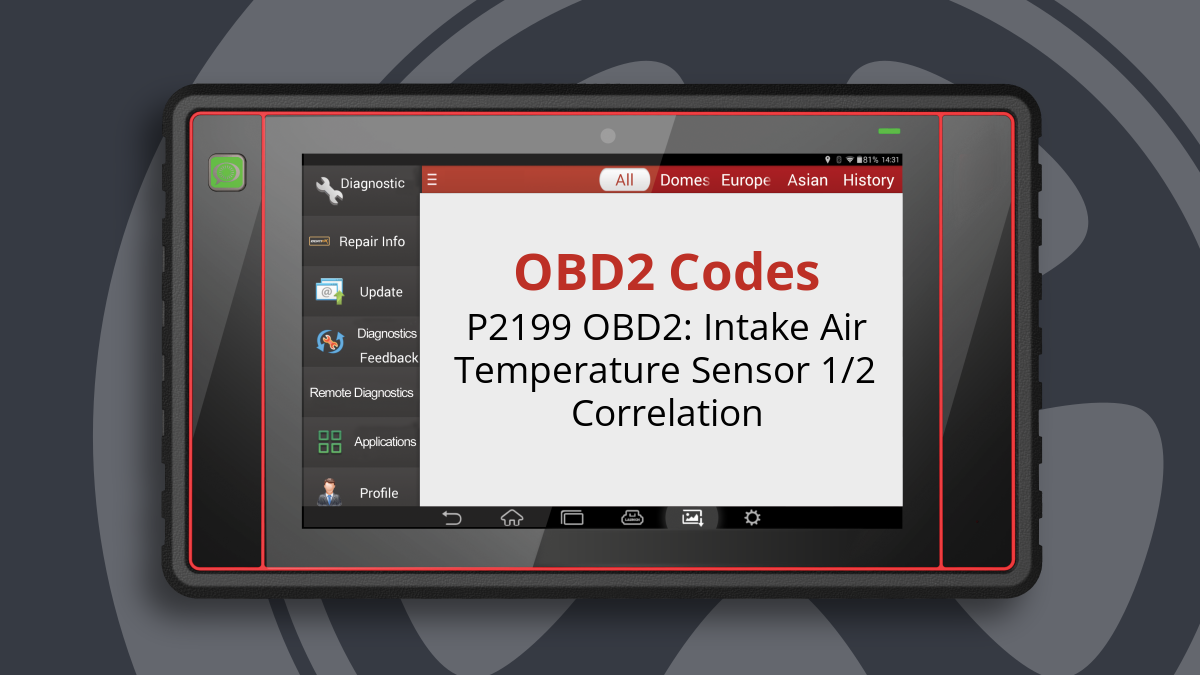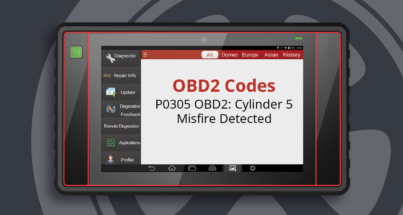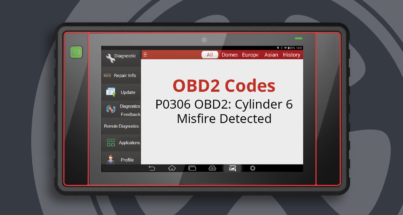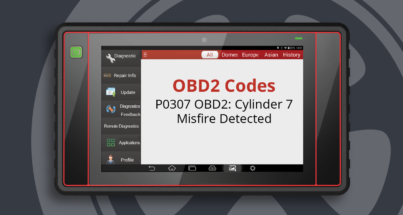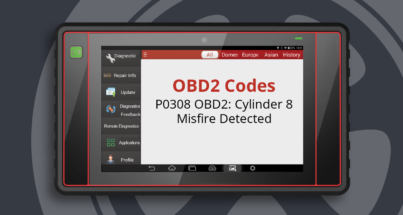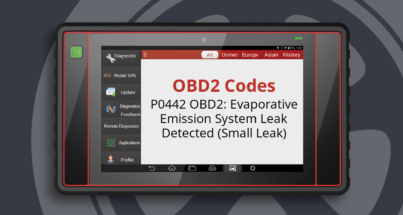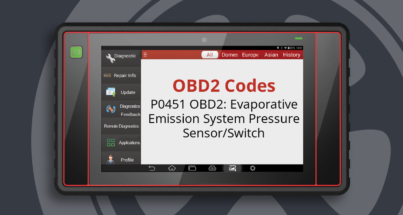What Does the P2199 Code Mean?
OBD-II Code P2199 is defined as an Intake Air Temperature Sensor 1/2 Correlation. This code is triggered when the engine control module (PCM) detects a discrepancy between the readings of the intake air temperature sensor 1 and sensor 2.
What Causes the P2199 Code?
The primary causes of the P2199 code include:
- Intake Air Temperature (IAC) sensor failure
- Powertrain Control Module (PCM) failure
- Wiring issues related to the sensors
What Are the Symptoms of the P2199 Code?
Symptoms of the P2199 code may include:
- Decreased engine performance
- Increased fuel consumption
How Serious Is the P2199 Code?
The severity of the P2199 code is moderate. While it may not immediately threaten the vehicle’s safety or functionality, it is essential to diagnose and address the issue within a reasonable time frame to prevent more severe problems down the line.
How to Diagnose the P2199 Code
Diagnosing the P2199 code typically involves the following steps:
- Connect an OBD-II scanner to the vehicle’s diagnostic port.
- Retrieve and record the code and any related codes.
- Inspect the wiring and connectors for any visible damage or disconnections.
- Test the intake air temperature sensors for proper function.
- Check the PCM for any faults or updates.
Common Repairs for the P2199 Code
Common repairs for the P2199 code may include:
- Replacing a faulty Intake Air Temperature sensor
- Repairing or replacing damaged wiring or connectors
- Reprogramming or replacing the Powertrain Control Module (PCM)
How Much Does It Cost to Fix the P2199 Code?
The cost to fix the P2199 code can vary widely based on the underlying issue:
- Sensor replacement: $100 – $300
- Wiring repairs: $50 – $150
- PCM replacement: $500 – $1500
Can I Fix the P2199 Code Myself?
While some aspects of diagnosing and fixing the P2199 code can be done by a knowledgeable DIYer, tasks such as PCM replacement or complex electrical repairs may require professional assistance. It’s advisable to consult a qualified mechanic if you are unsure.


